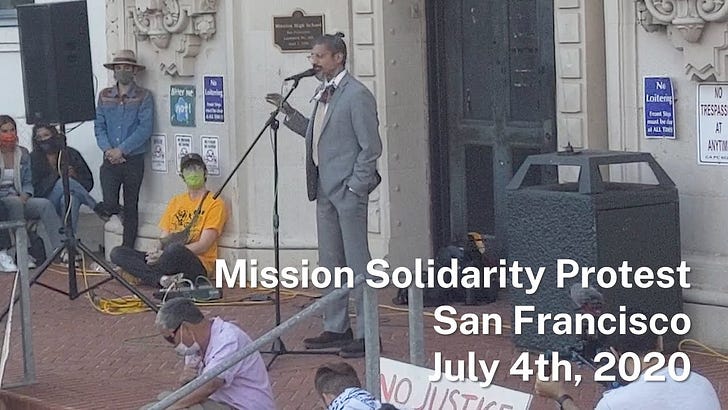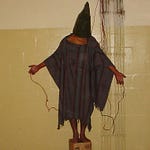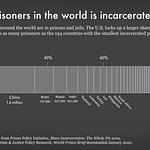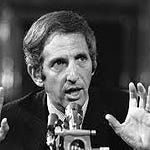The day after Independence Day in 1852, Frederick Douglass offered a timeless speech in Rochester, New York to the The Ladies Anti-Slavery Society. It represented a resounding refutation of national myths that persist to this day.
Chief among them is the myth that slavery ended in the United States after the Civil War, when in fact the 13th Amendment to the U.S. Constitution explicitly invites it “as a condition of punishment.” Today, in 2023, more Americans remain legally enslaved than were held in bondage at the height of the Antebellum South.
As our nation celebrates Independence Day, it would behoove each of us to consider the reality that too many Americans either never learn, or instead remain too afraid to acknowledge.
“There is not a nation on the Earth guilty of practices, more shocking and bloody, than are the people of these United States, at this very hour.”
— Frederick Douglass
What to the Slave Is the Fourth of July?
Douglass’ speech was titled “What to the Slave Is the Fourth of July?” While he delivered his oration roughly a decade before the Civil War, his analysis remains painfully appropriate today, as millions of Americans celebrate the “independence” of a country built on genocide and forced labor that is the only one in human history to ever deploy nuclear weapons—against civilian populations, at that.
He began by observing the bravery of the revolutionaries who rejected colonial rule, and the timeless vision expressed by our nation’s founding documents.
Feeling themselves harshly and unjustly treated by the home government, your fathers, like men of honesty, and men of spirit, earnestly sought redress. They petitioned and remonstrated; they did so in a decorous, respectful, and loyal manner. Their conduct was wholly unexceptionable. This, however, did not answer the purpose. They saw themselves treated with sovereign indifference, coldness and scorn. Yet they persevered. They were not the men to look back….
Oppression makes a wise man mad. Your fathers were wise men, and if they did not go mad, they became restive under this treatment. They felt themselves the victims of grievous wrongs, wholly incurable in their colonial capacity. With brave men there is always a remedy for oppression….It was a startling idea…The timid and the prudent…of that day, were, of course, shocked and alarmed by it….
Pride and patriotism, not less than gratitude, prompt you to celebrate and to hold it in perpetual remembrance. I have said that the Declaration of Independence is the ring-bolt to the chain of your nation’s destiny; so, indeed, I regard it. The principles contained in that instrument are saving principles. Stand by those principles, be true to them on all occasions, in all places, against all foes, and at whatever cost….
It bears noting that the Vietnamese Declaration of Independence authored by Ho Chi Minh in 1945 began by quoting its American precursor that helped inspire it. In response, America invaded, killing millions and dropping more bombs on the neighboring countries of Laos and Cambodia (with whom Washington claimed not to be at war) than were deployed during the entire period of the Second World War. Unexploded ordnance continued to kill and maim for decades, and the ecocidal deployment of defoliant Agent Orange led to birth deformities and preventable illnesses not only among Vietnamese several generations later, but also the children of U.S. servicemembers treated like cannon fodder to serve the whims of Wall Street.
That was far from the last time that our country would betray our founding principles.
Douglass then turned from observing the bravery of revolutionaries and the value of our nation’s founding documents to the unfortunate reality of his era—and our’s today. He continued:
I am not included within the pale of this glorious anniversary! Your high independence only reveals the immeasurable distance between us. The blessings in which you, this day, rejoice, are not enjoyed in common. The rich inheritance of justice, liberty, prosperity and independence, bequeathed by your fathers, is shared by you, not by me. The sunlight that brought life and healing to you, has brought stripes and death to me. This Fourth [of] July is yours, not mine.
You may rejoice, I must mourn. To drag a man in fetters into the grand illuminated temple of liberty, and call upon him to join you in joyous anthems, were inhuman mockery and sacrilegious irony….
My subject, then fellow-citizens, is American Slavery. I shall see, this day, and its popular characteristics, from the slave’s point of view. Standing, there, identified with the American bondman, making his wrongs mine, I do not hesitate to declare, with all my soul, that the character and conduct of this nation never looked blacker to me than on this 4th of July!…
What, am I to argue that it is wrong to make men brutes, to rob them of their liberty, to work them without wages, to keep them ignorant of their relations to their fellow men, to beat them with sticks, to flay their flesh…to sunder their families, to knock out their teeth, to burn their flesh, to starve them into obedience and submission to their masters?
[A brief digression here I would simply add: “or, perhaps, to kneel on their necks”?]
Must I argue that a system thus marked with blood, and stained with pollution, is wrong?…
At a time like this, scorching irony, not convincing argument, is needed. O! had I the ability, and could I reach the nation’s ear, I would, to-day, pour out a fiery stream of biting ridicule, blasting reproach, withering sarcasm, and stern rebuke. For it is not light that is needed, but fire; it is not the gentle shower, but thunder. We need the storm, the whirlwind, and the earthquake. The feeling of the nation must be quickened; the conscience of the nation must be roused; the propriety of the nation must be startled; the hypocrisy of the nation must be exposed; and its crimes against God and man must be proclaimed and denounced.
What, to the American slave, is your 4th of July? I answer: a day that reveals to him, more than all other days in the year, the gross injustice and cruelty to which he is the constant victim. To him, your celebration is a sham; your boasted liberty, an unholy license; your national greatness, swelling vanity; your sounds of rejoicing are empty and heartless; your denunciations of tyrants, brass fronted impudence; your shouts of liberty and equality, hollow mockery; your prayers and hymns, your sermons and thanksgivings, with all your religious parade, and solemnity, are, to him, mere bombast, fraud, deception, impiety, and hypocrisy – a thin veil to cover up crimes which would disgrace a nation of savages.
There is not a nation on the Earth guilty of practices, more shocking and bloody, than are the people of these United States, at this very hour. Go where you may, search where you will, roam through all the monarchies and despotisms of the old world, travel through South America, search out every abuse, and when you have found the last, lay your facts by the side of the everyday practices of this nation, and you will say with me, that, for revolting barbarity and shameless hypocrisy, America reigns without a rival.
It is difficult to muster respect for a country wielding exorbitant resources, an implacable dominance of weapons, and a self-marginalizing ignorance of its own stated principles. Across the world—from 1852 and still to this day—no country embodies that combination better than does the United States.
Bipartisan imperialism continues under Biden
Some might imagine that Douglass’ observations were historically accurate, but have been superseded by intervening events. They would unfortunately be wrong.
In the years since Frederick Douglass observed the casual brutality with which our country once enslaved millions of Black Americans, the United States has:
embraced an industrial labor strategy based on slave labor in prisons;
reversed its most significant legal protections for civil rights and civil liberties from voting rights to reproductive rights;
contrived an unprecedented upward transfer of wealth from the poor and middle class to the rich;
invaded (or sponsored violent coups d’etat) in dozens of countries around the world, including several that have tried to nationalize their natural (eg fossil fuel, fruit, lithium, and other) resources to reclaim them from multinational companies;
eroded the international legal regime we once fought a world war to establish by promoting torturers rather than holding them accountable, and placing international criminals to public advisory bodies despite decades of human rights abuses (which Biden did just yesterday); and
engineered a global climate catastrophe to fill the pockets of fossil fuel companies (which Congress continues to idiotically subsidize using public funds).
Every one of those decisions was an object of thoroughly bipartisan support.
Power concedes nothing without a demand
5 years after his historic speech addressing the Fourth of July and reality of American despotism, Frederick Douglass again made history by observing the pattern of deference that enables it. In some respects, his prescience anticipated the much later wisdom of Dr. Martin Luther King, Jr., whose canonical Letter from Birmingham Jail paraphrased much of Douglass’ analysis.
Speaking on August 3, 1857 in Canandaigua, New York, he said:
Let me give you a word of the philosophy of reform. The whole history of the progress of human liberty shows that all concessions yet made to her august claims have been born of earnest struggle. The conflict has been exciting, agitating, all-absorbing, and for the time being, putting all other tumults to silence. It must do this or it does nothing. If there is no struggle there is no progress. Those who profess to favor freedom and yet deprecate agitation are men who want crops without plowing up the ground; they want rain without thunder and lightning. They want the ocean without the awful roar of its many waters.
This struggle may be a moral one, or it may be a physical one, and it may be both moral and physical, but it must be a struggle. Power concedes nothing without a demand. It never did and it never will. Find out just what any people will quietly submit to and you have found out the exact measure of injustice and wrong which will be imposed upon them, and these will continue till they are resisted with either words or blows, or with both. The limits of tyrants are prescribed by the endurance of those whom they oppress.
Having myself made public demands of an unjust system and discovered its continuing and bipartisan racist corruption the hard way, I recognize the blatant inadequacy of whatever passes for the so-called “left” in the United States. From public interest organizations that settle for advocating before ultimately co-opted courts to constituent groups pleading for reforms from career and dynasty politicians who ignore and co-opt them, even most voices critical of American despotism sadly continue to enable it.
In that context, actual demands—of the sort that force power to consider concessions—are few and far between. That’s one reason to embrace them on the rare occasion that they do appear, and to recognize the profundity of those opportunities when they emerge.
Beyond my work in the courts and non-profit policy advocacy, I’m most proud of my projects that created those kinds of opportunities, from organizing direct action to shut down the facilities of weapons manufacturers to a campaign that offered San Francisco its first contested congressional election in 35 years. I’m even more proud of an intellectually magnificent mentor, muse, and voice of moral conscience who stands in the proud steps of Frederick Douglass today: Dr. Cornel West.
Dr. West’s candidacy for the White House represents far more than a presidential campaign. It embodies precisely the kind of demand that Frederick Douglass invited. Dr. West exposes the fraud on which corporate Democrats and President Joe Biden have long relied, and is uniquely poised to force the public reckoning that they have done everything possible to pre-empt.
In his speech observing the vacuous meaning of July Fourth, Frederick Douglass began by praising democracy and the revolution that aimed to secure it. Nearly 170 years later, America has an unprecedented chance to act on the knowledge and insight that he shared.
Or instead, the Sheeple of the United States could continue to sit on their hands and bleat as democracy continues to recede around the world, the climate catastrophe continues to race their grandchildren off a cliff, and weapons manufacturers continue to laugh all the way to the bank.
In another era, a successor to Frederick Douglas and precursor to Dr. West, Malcolm X, observed that the choice before America is ultimately one between “the ballot” and “the bullet.” Having embraced entirely too many bullets—from a seemingly neverending series of mass shootings to an equally neverending string of wars and pretexts to sell weapons—America might dedicate this Independence Day to a demand at the ballot box that could spare us worse yet to come.
Taking action inspired by Douglass, X, and West
Paid subscribers can watch a speech I gave in San Francisco on July 4, 2020 during the height of the protests challenging the contemporary slavery regime embedded in mass incarceration. It reflects on some of the same themes as Frederick Douglass, whose voice and legacy—from his speech 168 years ago to his public observation that “power concedes nothing without a demand”—have crucially informed my perspective, as well as my actions.
Beyond standing with a liberatory social movement seeking human rights that have only further degraded in the time since I spoke in 2020, I remain especially proud to have connected the dots between domestic and international examples of American authoritarianism. To the extent my efforts as a public advocate have offered anything unique to my community and country, it is the recognition of global intersections—and opportunities for solidarity—that sadly elude most observers.
Listen to this episode with a 7-day free trial
Subscribe to Chronicles of a Dying Empire to listen to this post and get 7 days of free access to the full post archives.










